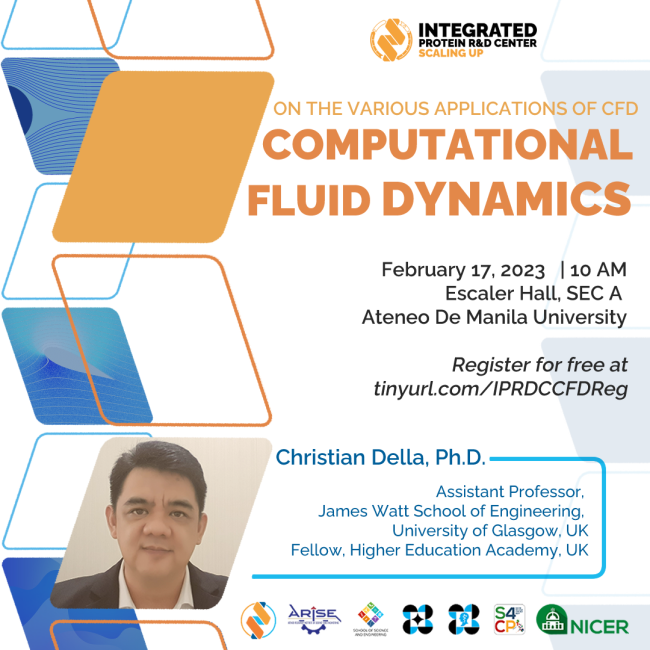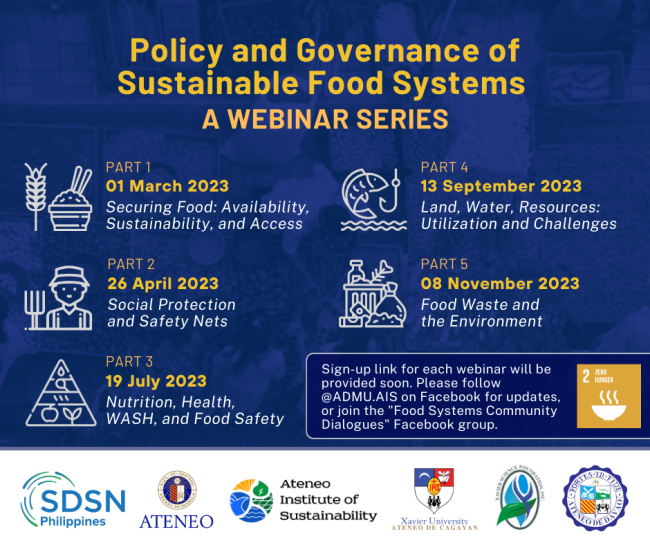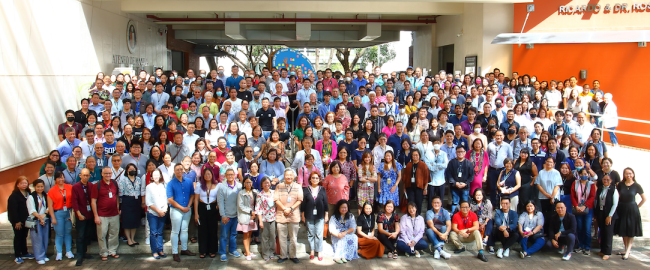Ateneo and the UN Sustainable Development Goals
Sustainable Development Goal 6
Clean Water and Sanitation
Ensure availability and sustainable management of water and sanitation for all
Ateneo University's commitment to Sustainable Development Goal 6 (SDG 6), focused on ensuring clean water and sanitation, demonstrates a dedication to sustainable practices and responsible water management. Over the years, there have been noticeable improvements in managing water consumption at the individual level, reflecting Ateneo's ongoing efforts. The university's sustainability initiatives, as evidenced by the Ateneo Sustainability Report 2020 and updated policies and guidelines, emphasize the importance of robust water consumption tracking and management measures to promote efficient water use. Ateneo has consistently excelled in water management and conservation practices regarding water usage and care, with notable contributions such as rainwater catchment facilities and water-conscious planting practices. Efforts related to water reuse have shown positive trends, with Ateneo implementing a Water Reuse Policy. The university's community engagement in water-related initiatives has consistently emphasized awareness, education, and extending efforts beyond the campus boundaries. To further enhance its commitment to SDG 6, Ateneo should strengthen research initiatives, promote water consumption efficiency, foster water reuse practices, and continue community engagement and cooperation on water security.
To enhance its commitment to SDG 6, Ateneo University should focus on several key recommendations. First, despite prior improvements in research impact, there is a need to bolster research initiatives, allocate resources, and encourage interdisciplinary collaborations and external partnerships for a deeper understanding of water-related challenges. Second, while there has been progress in managing water consumption, Ateneo should prioritize water use efficiency, utilizing technology, awareness campaigns, and behavioral changes to reduce consumption and regular monitoring to inform conservation efforts. Third, maintaining high water usage and care standards is crucial, involving adherence to sustainability policies, wastewater treatment, pollution prevention, and ensuring access to clean drinking water. Fourth, efforts to promote water reuse should persist and be supported by research, innovation, and community education. Finally, community engagement should be a continuous focus, expanding educational opportunities, collaborating with local communities, and strengthening cooperation on water security through partnerships, collectively contributing to sustainable water management.
Related Links:
News and Features
On the Various Applications of Computational Fluid Dynamics
On the Various Applications of Computational Fluid Dynamics Dr. Christian Della, PhD February 17, 2023, 10:00 AM Escaler Hall, Ateneo de Manila University Abstract Computational...
Policy and Governance of Sustainable Food Systems Webinar Series
Save the Dates: “Policy and Governance of Sustainable Food Systems” Webinar Series The Philippines had an undernutrition prevalence rate of 14.7% from 2017-2019 which has...
Balik Tanaw: LS Faculty Day looks back at lessons learned during the pandemic
On 10 February, Loyola Schools faculty and administrators convened for Faculty Day. The gathering, which celebrated the start of the second semester, had the theme...
Exploring the Best Ways to Incentivise Recycling: A Behavioural Field Experiment
Presentation Video Recording Registration Links: February 8: https://bit.ly/MikeBrock February 22: https://bit.ly/StefaniaParedesFuentes March 15: https://bit.ly/CarolineTheoharides March 29: https://bit.ly/ChetanGhate April 12: https://bit.ly/LeonardoLanzona2023 April 26: https://bit.ly/DanieldelBarrioAlvarez May 10...



